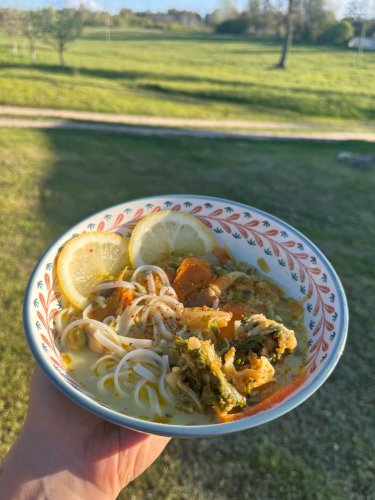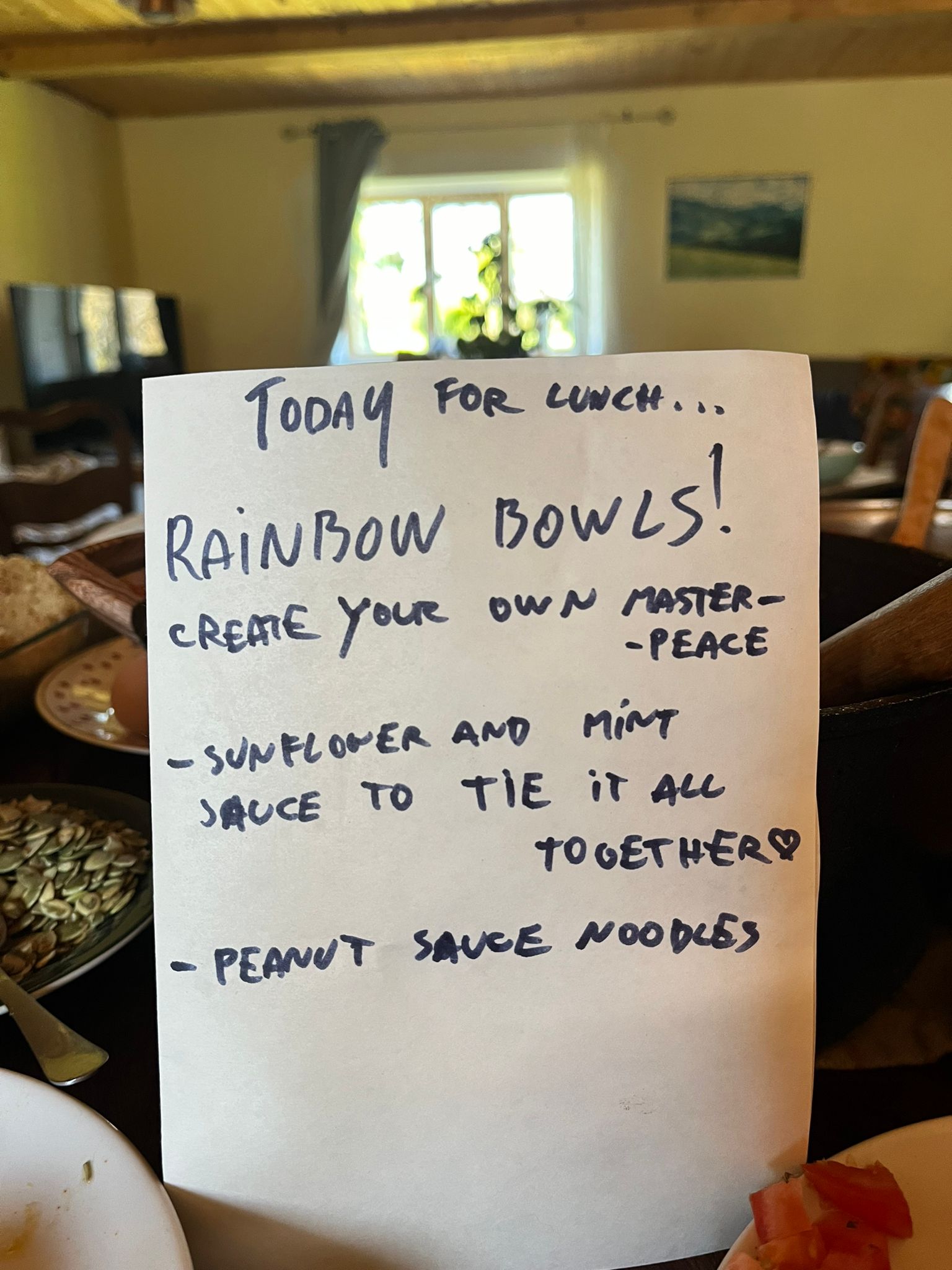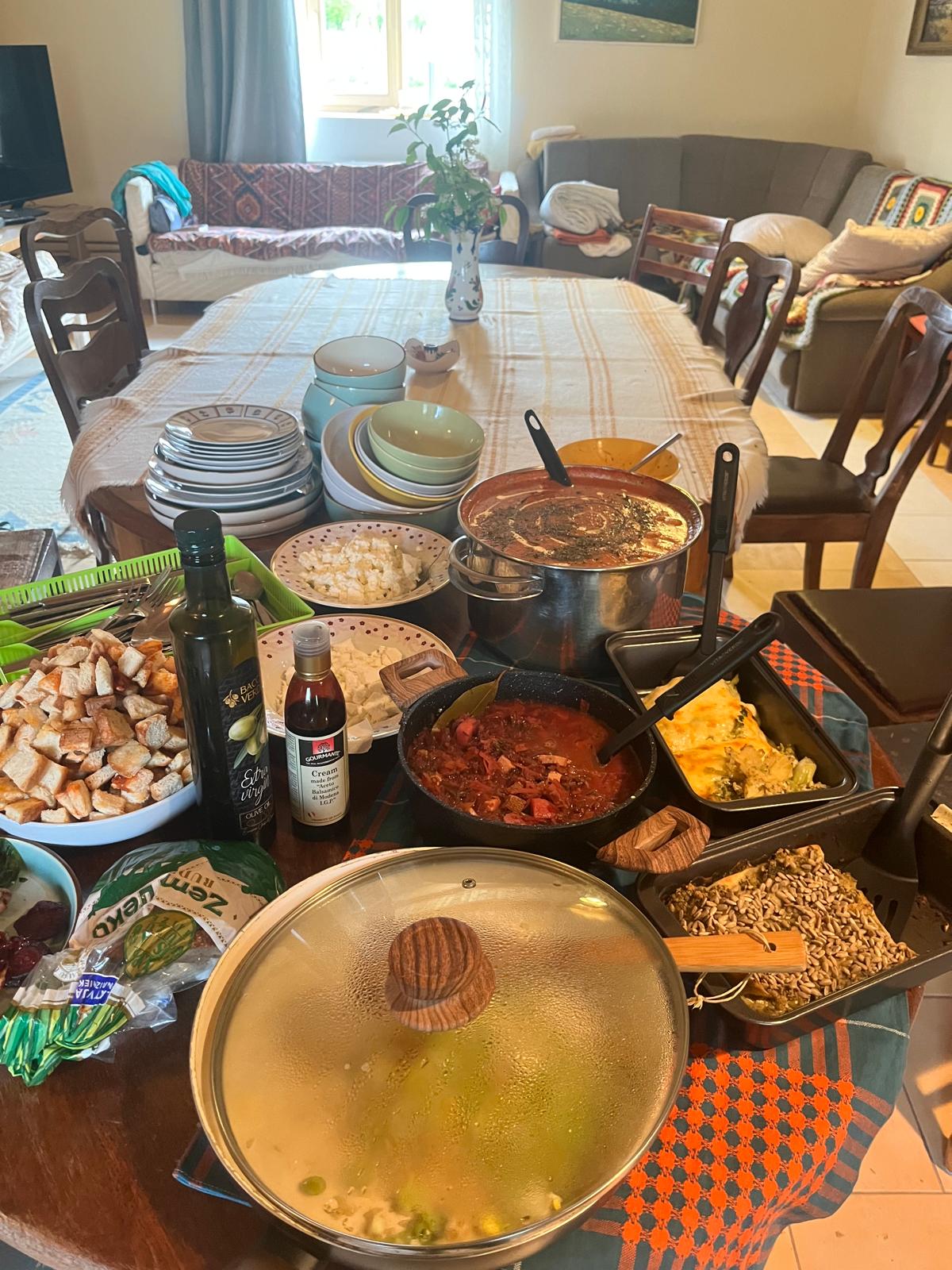
About Food
A few times a year, we organise training events for youth workers from all over Europe. But learners don't live on knowledge alone. This entry is dedicated to Elizabete, the chef of our last training and her contribution to the well-being of the participants. Together with our volunteer Irina, they prepared a great menu for the 6-day Re-Wild training. Before each meal, Elizabeth also likes to share a story about the dishes that were put on the table. In our projects we look for ways to eat vegetarian, using local products where possible, ordering from farmers, etc. In May, the gardens are just starting to green up, but Elizabeth fed the youth worker group with both nettle soup and a goutweed salad. We asked her a few questions about how and why she now finds her calling in catering for international groups. Read Elizabeth's story below.
I've been cooking since I was 8 years old. In fact, cooking is my first serious occupation. The association Piedzivojuma Gars invited me to cook at an international training when I was 14. Of course, I made a lot of mistakes. It was quite difficult at first. At the same time, I learnt a lot from the process and with time a sense of freedom emerged - cooking is a creative process. The products are the raw materials for my creativity. Sometimes I cook my childhood dishes. Sometimes I take inspiration from my experiences abroad. For example, tomato soup from Italy and oyster mushroom soup from the Czech Republic have entered my menu. Of course, the menu is also influenced by what is available on the market or in the shop at a given place and time. Sometimes it's just that an idea comes. For example, during this training, I thought it would be cool to blanch nettles and there was spinach in the fridge. So I made a spinach-nettle soup. From the liquid left over after blanching the nettles, I made tea, which was new to several participants. Sometimes I just want to make something special. I think it is important to offer local Latvian food to people from other countries.
Of course, I also think about nutrition. This is especially important if you have people who eat meat every day and are worried about not getting enough nutrition from plant-based products. Although in reality, plants can be used in many different ways to provide a high quality and nutritious meal. I often make plant alternatives for what are traditionally meat dishes to inspire and show that it is possible.
Project “Re-Wild” is financed by the Erasmus+ Programme of the European Union that in Romania is administrated by the National Agency for Community Programs in the Field of Education and Vocational Training. The article reflects only the opinion of the author.

